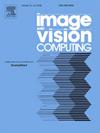3D human avatar reconstruction with neural fields: A recent survey
IF 4.2
3区 计算机科学
Q2 COMPUTER SCIENCE, ARTIFICIAL INTELLIGENCE
引用次数: 0
Abstract
3D human avatar reconstruction aims to reconstruct the 3D geometric shape and appearance of the human body from various data inputs, such as images, videos, and depth information, acting as a key component in human-oriented 3D vision in the metaverse. With the progress in neural fields for 3D reconstruction in recent years, significant advancements have been made in this research area for shape accuracy and appearance quality. Meanwhile, substantial efforts on dynamic avatars with the representation of neural fields have exhibited their effect. Although significant improvements have been achieved, challenges still exist in in-the-wild and complex environments, detailed shape recovery, and interactivity in real-world applications. In this survey, we present a comprehensive overview of 3D human avatar reconstruction methods using advanced neural fields. We start by introducing the background of 3D human avatar reconstruction and the mainstream paradigms with neural fields. Subsequently, representative research studies are classified based on their representation and avatar partswith detailed discussion. Moreover, we summarize the commonly used available datasets, evaluation metrics, and results in the research area. In the end, we discuss the open problems and highlight the promising future directions, hoping to inspire novel ideas and promote further research in this area.
基于神经场的三维人类化身重建:一项最新研究
三维人体化身重建旨在从图像、视频、深度信息等各种数据输入中重建人体的三维几何形状和外观,是元宇宙中面向人体的三维视觉的关键组成部分。近年来,随着神经网络在三维重建领域的研究进展,该领域在形状精度和外观质量方面取得了重大进展。与此同时,在神经场表示的动态化身方面的大量研究已经显示出其效果。尽管已经取得了显著的进步,但在野外和复杂的环境、详细的形状恢复以及实际应用中的交互性方面仍然存在挑战。在这项调查中,我们提出了一个全面的概述三维人类化身重建方法使用先进的神经领域。本文首先介绍了三维人体头像重建的背景和神经场的主流范式。随后,根据代表性研究的代表性和代表性部分对代表性研究进行了分类,并进行了详细的讨论。此外,我们还总结了研究领域中常用的可用数据集、评估指标和结果。最后,对该领域尚未解决的问题进行了讨论,并对未来的研究方向进行了展望,希望能启发新的思路,促进该领域的进一步研究。
本文章由计算机程序翻译,如有差异,请以英文原文为准。
求助全文
约1分钟内获得全文
求助全文
来源期刊

Image and Vision Computing
工程技术-工程:电子与电气
CiteScore
8.50
自引率
8.50%
发文量
143
审稿时长
7.8 months
期刊介绍:
Image and Vision Computing has as a primary aim the provision of an effective medium of interchange for the results of high quality theoretical and applied research fundamental to all aspects of image interpretation and computer vision. The journal publishes work that proposes new image interpretation and computer vision methodology or addresses the application of such methods to real world scenes. It seeks to strengthen a deeper understanding in the discipline by encouraging the quantitative comparison and performance evaluation of the proposed methodology. The coverage includes: image interpretation, scene modelling, object recognition and tracking, shape analysis, monitoring and surveillance, active vision and robotic systems, SLAM, biologically-inspired computer vision, motion analysis, stereo vision, document image understanding, character and handwritten text recognition, face and gesture recognition, biometrics, vision-based human-computer interaction, human activity and behavior understanding, data fusion from multiple sensor inputs, image databases.
 求助内容:
求助内容: 应助结果提醒方式:
应助结果提醒方式:


